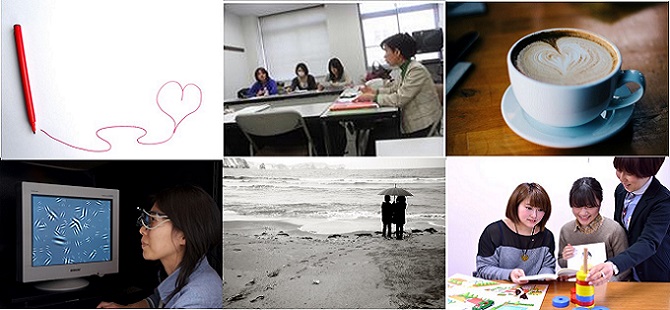- Top
- Psychology
ページの本文です。

Psychology
Psychology
Cultivating observational skills and discovering patterns of human behavior, Understanding mysteries of human psyche and providing support and help to people in need: Studying mind from a scientific perspective and developing openness into one’s own inner experiences toward personal and societal growth.
The modern society is filled with complex psychological and health issues and related social problems: from depression, suicide, developmental and health problems, delinquency, bullying, to surviving natural disasters and violent crimes.
Psychology is a discipline that scientifically examines human psychological processes such as forming judgments, decision-making, interpersonal cognition, and communication with the goal of resolving psychological and social problems and challenges by making the best use of evidence accumulated from systematic psychological studies on a variety of aspects of human life. The ability to examine mind using scientific perspective is a skill that is useful to one’s life and to support others.
Objective: Promoting the development of Scientist-Practitioners
The Department of Psychology provides a basic education in psychology, along with the knowledge necessary to implement it practically in real life. In other words, students cultivate the ability to deeply understand and scientifically view the basic processes and functions of human psychology and behaviors in various living environments and situations, along with the ability to discover issues and solve problems. The mission of the department is to educate and train people who can acquire credentials in the field of psychology while serving in a variety of clinical settings in contributing to society by attaining a scientific methodology with an attitude towards others that is always authentic—also known as scientist-practitioners.
Features: Systematic and Gradual Learning of Theory and Practice
The Department of Psychology is structured as a synthesis between courses in basic and evidence-based psychology and clinical and practice-oriented psychology. This makes it possible to foster students who 1) can formulate questions from issues in everyday life and have a scientific mind to verify those questions, and 2) acquire scientific and evidence-based perspectives and methodologies with the practical perspectives and skills that can be applied to all aspects of life.
Furthermore, four new specialized fields that integrate basic and evidence-based psychology with clinical and practical psychology—Cognitive and Biological psychology, Social psychology and psychology in social services, Health psychology and psychology at health settings, and Developmental and Educational psychology —were established, and each field has special applied lecture courses and seminars.
Introduction to Cognitive Psychology
Students learn about human information processing (pattern recognition, learning, memory, etc.) from perspectives including neurophysiology, computational theory, and behavioral science.
Introduction to Developmental Psychology
Students learn about basic theories in developmental psychology, cognitive and social development during childhood, and developmental tasks that occur during puberty, adolescence, and old age.
Psychology Statistics
Students learn about data collection in psychology, along with validation, variance analysis, regression analysis, and other statistical analysis theories and practical methods.
Experimental Psychology (Basic)
Students learn about the basic techniques to conduct psychological experiments and surveys used in educational psychology, social psychology, developmental psychology, clinical psychology, and cognitive psychology.
Developmental Clinical Psychology
Students acquire basic knowledge regarding human development over the course of a lifetime starting with infancy and learn about representative theories regarding the understanding of clinical problems in this process.
Clinical Psychology in School Settings
Students learn in practical terms about the clinical, educational, and community psychology applied to support child students and schools, and to provide career guidance in school settings.
Theories and Practice of Counseling and Psychotherapy
Students learn the basic concepts of counseling and psychotherapy. The philosophical foundations, definitions of psychopathological and psychological disorders, interviewing process, and roles of therapists and intervention methods of major approaches, including the psychoanalytic, humanistic, and cognitive behavioral approaches will be discussed.
Seminar in Gender Psychology
Based on the theme of gender and other broad aspects of human sexuality, students investigate what kinds of research are occurring in clinical psychology along with related prior research. Students then summarize current knowledge and decide what types of research will be required in the future.
Practice on Clinical Psychology
Students experience practical training both inside and outside the university in the area of support for psychology at health, medical, and educational institutions, collaborate with multiple occupations and fields, and study topics such as occupational ethics in the field of psychology.
Department Menu
- Introduction to Cognitive Psychology
- Introduction to Developmental Psychology
- Psychology Statistics
- Experimental Psychology (Basic)
- Developmental Clinical Psychology
- Clinical Psychology in School Settings
- Theories and Practice of Counseling and Psychotherapy
- Seminar in Gender Psychology
- Practice on Clinical Psychology







